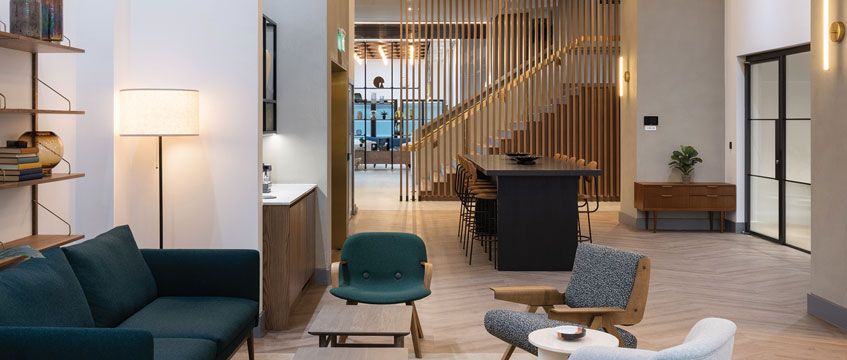Defendant taking room in hotel for indefinite duration – Claimant seeking possession – Whether room occupied under tenancies or licences – Whether room a dwelling-house within meaning of section 1 of Housing Act 1988 – Judge finding room occupied under tenancy
In January 1985 the defendant moved into a room in the Viscount Hotel, London W8, at a rent of £70 per week. Breakfast was available in the restaurant and was included in the rent. After 18 months he moved to another room at the request of the hotel, where he stayed for two years. In July 1989 he was told to move to another room which was 72 sq ft, contained a bed and had a separate lavatory with a shower and washbasin. Breakfast ceased to be provided when the restaurant closed in 1988. In 1990 the weekly rent rose to £91. No cooking facilities were provided in any of the rooms occupied by the defendant, although each of them contained one power point. The defendant was allowed to bring in furniture together with electrical equipment to enable him to prepare simple meals. However, in 1993 the hotel published rules on safety grounds that prohibited occupants from cooking in rooms, but permitted the use of microwaves and kettles. Although the residents were required to accept the rules by signing them, the defendant did not do so. He maintained that the terms of his occupation had not changed.
In July 1998 the claimant purchased the hotel and commenced proceedings against the defendant for possession of the room. The defendant claimed that he had exclusive possession of the room, which amounted to a dwelling-house within the meaning of section 1(1) of the Housing Act 1988. Accordingly, he maintained that he had a weekly assured tenancy. The judge found for the defendant, and, dismissing the claim for possession, declared that he held the room on an assured tenancy under the Act. The claimant appealed.
The Court of Appeal found that the judge’s findings were inadequate in relation to the question of whether the defendant’s occupation was under a licence or a tenancy. However, it was found by a majority that it was not appropriate to remit the matter, since the absence of cooking facilities precluded a finding that his room was a dwelling within the meaning of section 1 of the Act. The defendant appealed.
Held: The appeal was allowed.
The first step was to identify the subject matter of the tenancy agreement. The question was whether it was the tenant’s home at the date when the proceedings were brought. If so, it was his dwelling. If the tenancy agreement granted, in addition, the right to the shared use of other rooms, the question was whether the room, or rooms, of which he had exclusive possession, were his dwelling place, or only part of it. That depended upon the nature and extent of the right, and the character of the other rooms. The right to occupy a living room in common with, and at the same time as, the landlord was such an invasion of privacy that parliament could not have intended that the tenant should enjoy security of tenure. For that purpose, a kitchen was a living room, at least if it was possible to occupy it and not merely cook and wash-up in it. Thus a right to occupy a kitchen (as distinct from a right to make some limited use of its facilities) in common with the landlord would take the tenancy out of the Act. The presence or absence of cooking facilities in the part of the premises of which the tenant had exclusive occupation was not relevant.
* Editor’s note: Proceeding brought by Uratemp Ventures Ltd against Mary Carrell for possession of another room at the hotel was settled prior to the House of Lords hearing.
Philip Galway-Cooper (instructed by Fladgate Fielder) appeared for the claimant; Richard Vain (instructed by Alan Edwards & Co) appeared for defendant.
Thomas Elliott, barrister






